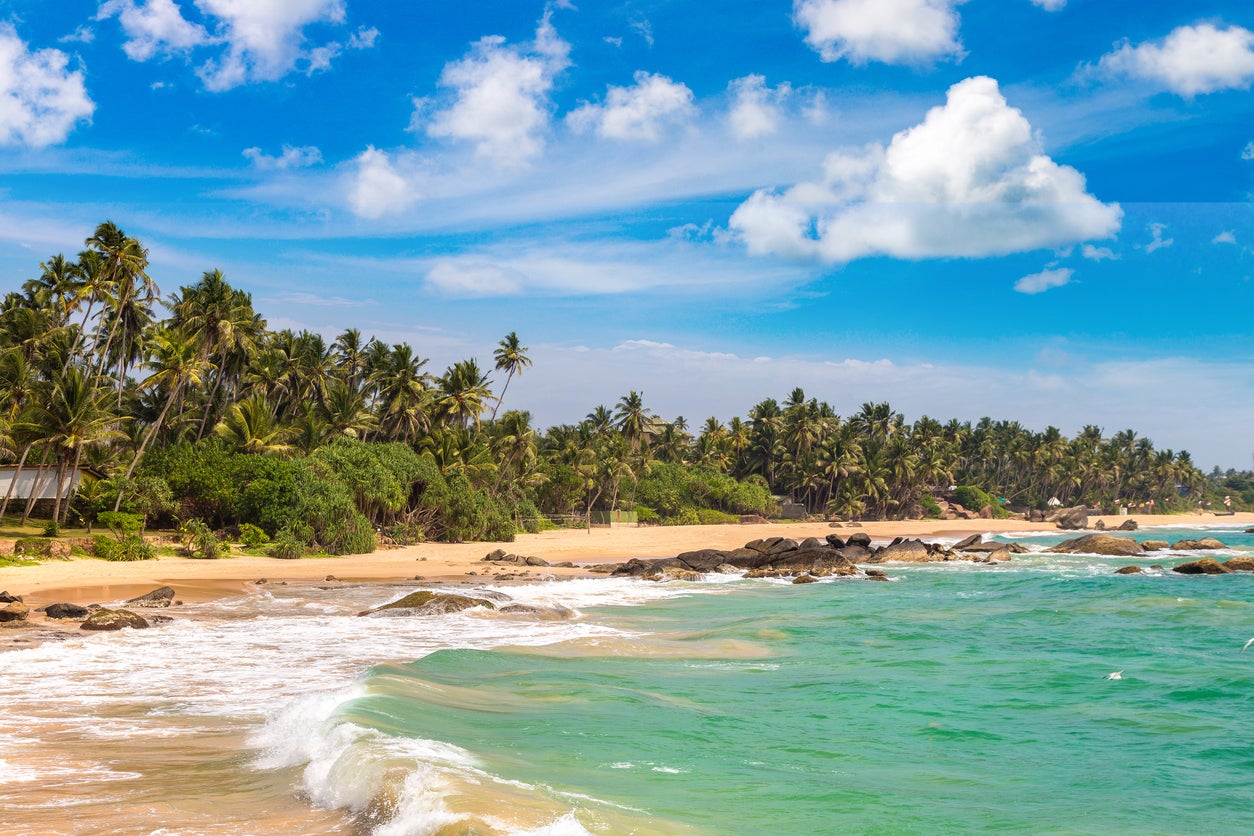Foreign Office removes ‘essential travel only’ warning for Sri Lanka
Holiday companies such as Tui had been cancelling Sri Lanka holidays, while other tour operators offered alternative destinations

Your support helps us to tell the story
From reproductive rights to climate change to Big Tech, The Independent is on the ground when the story is developing. Whether it's investigating the financials of Elon Musk's pro-Trump PAC or producing our latest documentary, 'The A Word', which shines a light on the American women fighting for reproductive rights, we know how important it is to parse out the facts from the messaging.
At such a critical moment in US history, we need reporters on the ground. Your donation allows us to keep sending journalists to speak to both sides of the story.
The Independent is trusted by Americans across the entire political spectrum. And unlike many other quality news outlets, we choose not to lock Americans out of our reporting and analysis with paywalls. We believe quality journalism should be available to everyone, paid for by those who can afford it.
Your support makes all the difference.The UK’s Foreign Office has removed its “essential travel only” warning for Sri Lanka, following months of violent unrest in parts of the country.
Holidaymakers will be able to travel to the Indian Ocean island once more without fear of their travel insurance being invalidated, or their trip cancelled.
The update was added to the FCDO’s website on Friday 26 August.
The FCDO had previously changed its advice on Sri Lanka on 22 July, advising all Britons against non-essential travel to the economically-hit destination. Travel advice was also made stricter in May 2022 amid the worst of the protests.
Sri Lanka has seen large-scale demonstrations since March, with locals clashing with police, as well as the removal of its former president, Mahinda Rajapaksa earlier this year.
At least 75 people were injured in mid-July during protests in Colombo, after authorities used tear gas and protesters sustained injuries trying to access the prime minister’s office.
New president Ranil Wickremesinghe renewed the country’s state of emergency when he took power on 21 July, saying it was “in the interest of public security”, with the Foreign Office advice changing shortly after.
While the FCDO no longer advises against travel to the popular beach and sightseeing destination, it still warns: “A State of Emergency, currently in place, is due to expire on 27 August 2022. Protests about the economic situation, have led to violence against peaceful protesters in recent months, resulting in injuries and loss of life.
“Tear gas and water cannons have been used to disperse protesters. Protests, demonstrations, roadblocks and violent unrest could occur at short notice. Curfews and emergency regulations may also be imposed.”
In early August, Tui cancelled all Sri Lanka holidays up to 22 August, saying: “Due to the ongoing political and economic instability in Sri Lanka, the Foreign, Commonwealth & Development Office (FCDO) have advised against all but essential travel.”
“As a result, we’ve unfortunately had to cancel all holidays to Sri Lanka departing up to and including 22 August 2022.
“We will be proactively contacting all impacted customers in departure date order to discuss their options.”
Tui, along with other tour operators selling holidays to the island, are expected to resume Sri Lanka bookings and departures in the coming weeks.
Join our commenting forum
Join thought-provoking conversations, follow other Independent readers and see their replies
Comments